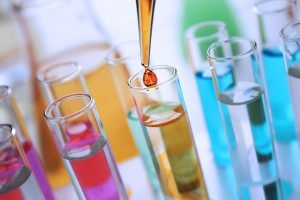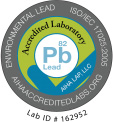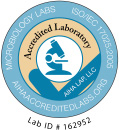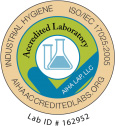
Quality drinking water is essential for our health and well-being. Testing water quality is important for municipalities, businesses, and homeowners. Whether water is used for drinking or irrigation, it’s vital that water quality is monitored regularly so that any problems can be addressed in a timely manner.
In this article, you will learn about common water contaminants and why it’s important to contact commercial laboratories for regular testing of water quality.
What are the most common contaminants in the United States?
According to the Centers for Disease Control and Prevention (CDC), common contaminants can be biological, pathogenic, chemical and mineral. Below, we will discuss some of the most common contaminants and the impact they have on individuals who ingest them.
- Giardia: This microscopic parasite causes severe gastrointestinal and diarrheal illness. Giardia is found on surfaces including soil, food or water that has come in contact with fecal matter.
- Norovirus: This pathogen is widely known because it is extremely contagious. Norovirus causes stomach pain, vomiting, and diarrhea and is a result of sewage or fecal contamination in water supplies.
- Copper: This element is found all around us in our environment and in plants and animals. Small amounts of copper are vital for our health and nutritional balance but too much copper can be detrimental to our health. High levels of copper in our water or food supply can cause harmful effects such as irritation of the nose, mouth and eyes, diarrhea, vomiting, nausea, stomach cramps, and even death.
- Salmonella: This bacteria is likely the most widely known form of “food poisoning.” When salmonella contaminates water supplies, it can cause abdominal cramps, fever, and diarrhea. In most cases, the symptoms subside after 4-7 days but many cases do require hospitalization.
- Lead: Lead is a harmful element that typically makes its way into our water system through lead pipes. Particularly in children, exposure to lead can lead to damage to the nervous system, learning disabilities, shortened attention span, impaired hearing and impaired function of the blood cells as reported by the Environmental Protection Agency.
Municipalities
Municipalities must make sure that the water supplied to the public is free of any contaminants. The water quality should be tested by an accredited laboratory. Harmful parasites and bacteria that are not visible can contaminate water. These microbes can be present in both surface and groundwater supplies. If water is not tested regularly, it can put the lives of the public in danger.
Agriculture
Water is used for various agricultural processes including spraying, watering, and irrigation. Each agricultural use requires that specific provincial and federal guidelines be met regarding water quality. The guidelines contain a list of parameters with tolerance level for specific uses.
Water that contains harmful substances such as bacteria, mold, lead, Legionella, and other contaminants can cause diseases in livestock and can cause contamination of produce and other agricultural products. To ensure that the water is suitable for livestock, it’s essential that water quality is checked at regular intervals.
Homes with Wells
Private well owners also need to test the water quality on a regular basis. They are responsible for the safety of their own wells. According to the EPA, private well owners should test water annually for coliform bacteria, dissolved solids, nitrates, lead, copper, and abnormal pH levels. The agency also recommends testing water quality after land disturbances, flooding, new industrial activity or construction. Testing should be done more frequently if elderly adults or children live in the house as they are more vulnerable to the effects of contaminated water.
Businesses
Many business owners understand that water quality is a significant risk to the health of their employees. That’s why businesses should test water quality at regular intervals. Testing water quality is particularly important for restaurants, hotels, and food processing companies. Water should be tested for hardness, pH, and harmful pathogens and chemicals.
Commercial laboratories check for bacteria such as Legionella and E coli, among others. The test consists of using different processes such as Raman spectroscopy, which examines the molecular composition of the sample using lasers. Other tests analyze the water to detect the presence of lead and other harmful metals. The concentration of the substance is listed in the test results.
If your water supply tests positive for a harmful substance, you will need to take action depending on the particular contaminant present in the water supply. Some problems can be addressed quickly through disinfecting water using ultraviolet light, chlorine, ozone treatment, flushing, and electronic radiation. For others, you may need to contact the local public health department in your area. The seasoned professionals at SanAir Technologies can help provide guidance in the event that a water sample tests positive for unsafe contaminant levels. The Centers for Disease Control and Prevention (CDC) also has suggested guidelines for treatment of contaminated water based on the contaminant and the level of contamination.
Contact SanAir Technologies laboratory if you are seeking an accredited water analysis laboratory. We make use of scientific testing procedures and equipment to test the presence of contaminants in water. For more information, you can contact us today by dialing (804) 897-1177.












